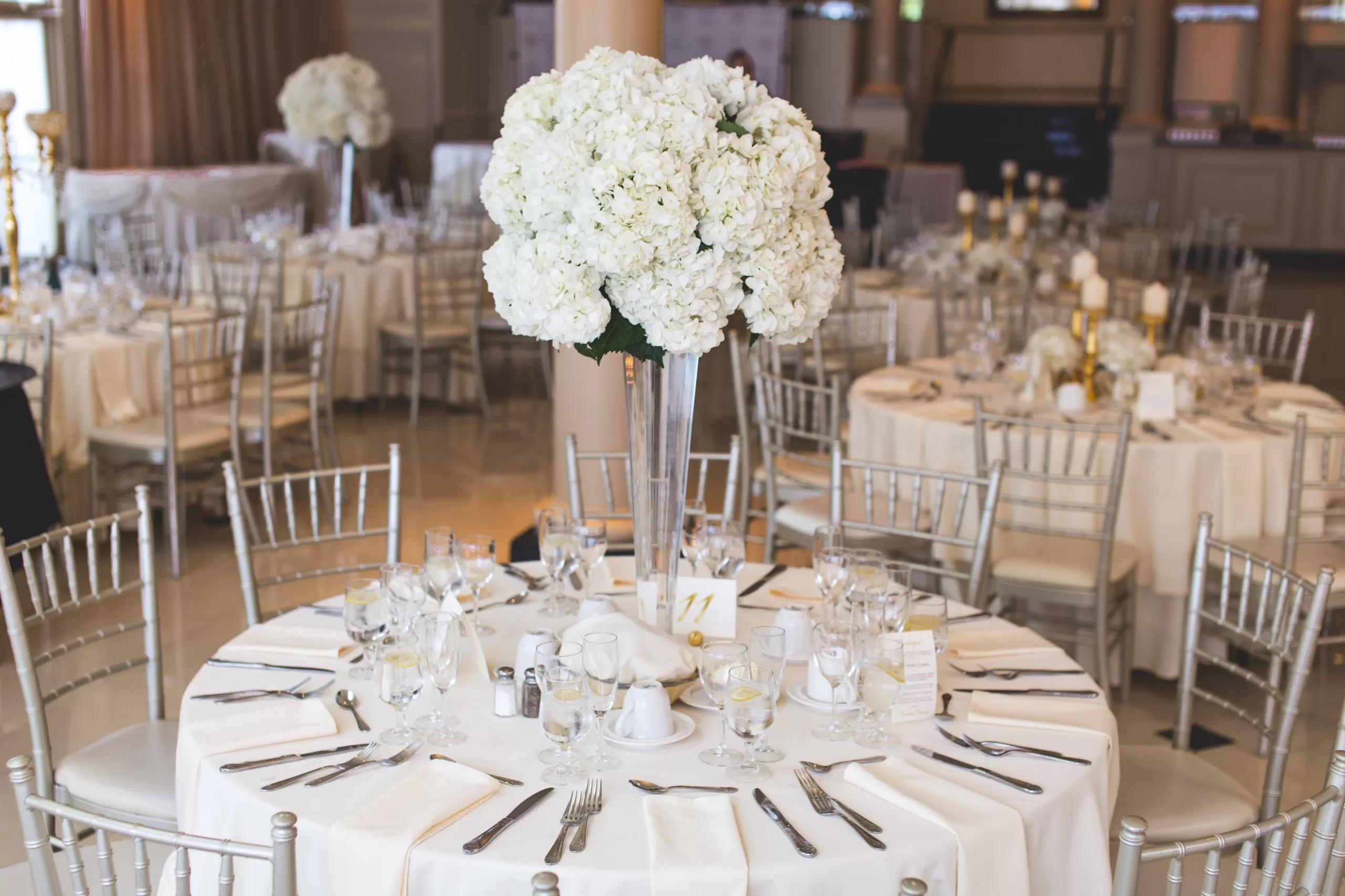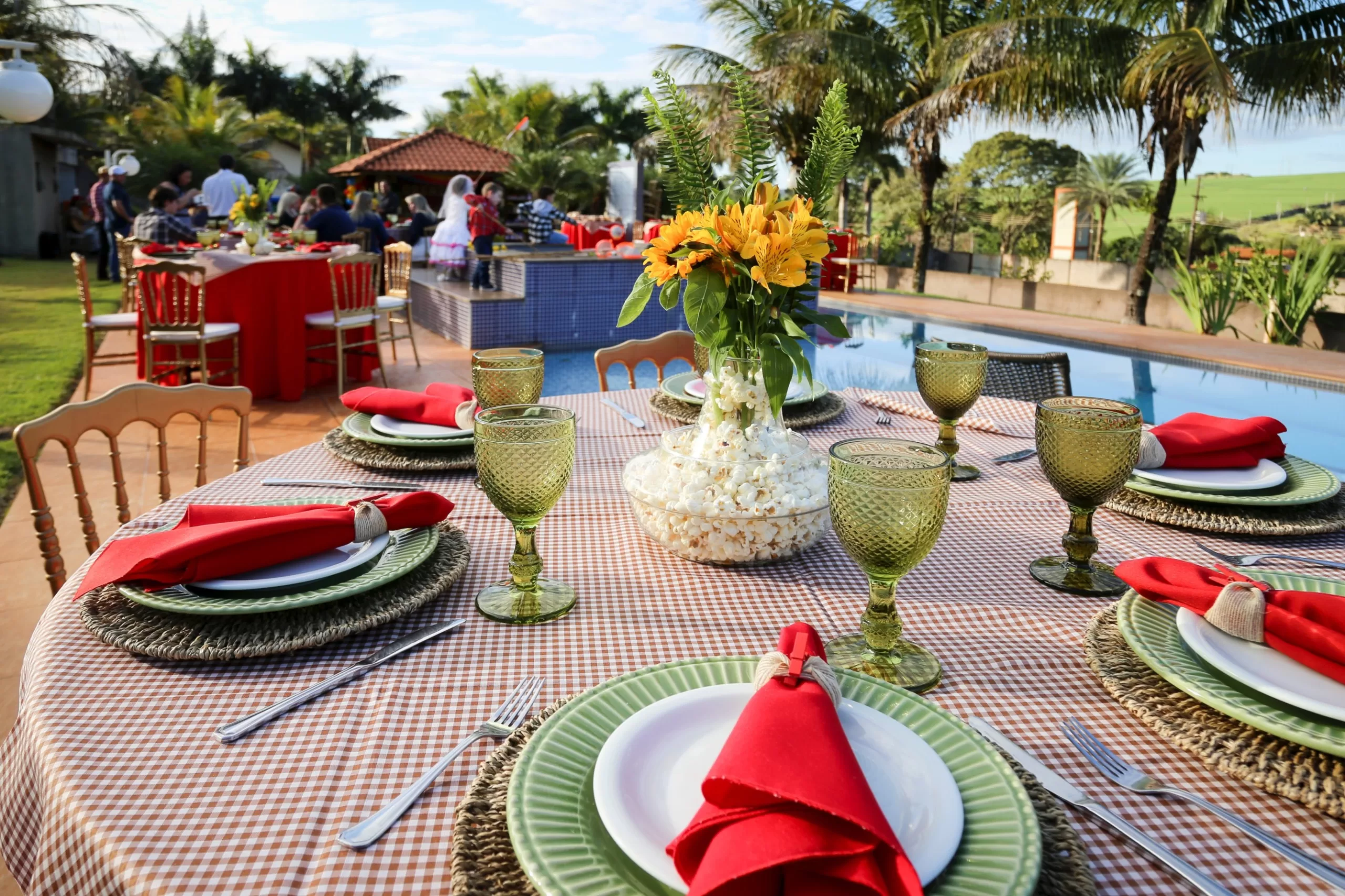The Ultimate Guide to Event Planning: From Coordination to Execution 2023
Are you ready to dive into the exciting world of Event Planning? Whether you’re organizing a corporate conference, a dreamy wedding, or a high-energy party, this comprehensive guide has got you covered. We’ll explore everything from event coordination to the latest event planning tools. So, let’s get started on your journey to becoming a top-notch event planner!
Event Coordination: The Foundation of Successful Events
Event coordination is the heartbeat of any successful event. It involves meticulous planning, clear communication, and attention to detail. As an event planner, your primary role is to bring together all the moving parts seamlessly. This includes managing vendors, timelines, budgets, and logistics.
But what sets apart exceptional event coordination? It’s the ability to anticipate challenges and find creative solutions. It’s about making sure that every aspect of the event aligns with the client’s vision and goals.
Key Responsibilities of Event Coordinators
- Vendor Management: Event coordinators are skilled at selecting and managing the right vendors, from caterers to decorators, ensuring they deliver quality services within budget.
- Timeline Creation: Crafting a detailed event timeline is crucial to keep everyone on the same page and ensure that the event flows smoothly.
- Budget Oversight: Staying within budget is a top priority. Coordinators must allocate resources wisely and find cost-effective solutions.
- Problem Solving: Unexpected hiccups can occur. Event coordinators must be quick thinkers and troubleshooters to keep the event on track.
- Client Communication: Keeping the client informed and involved throughout the planning process is vital for a successful event.

Party Organization: Turning Dreams into Reality
Planning a memorable party requires a blend of creativity and organization. Whether it’s a birthday bash, an anniversary celebration, or a themed costume party, the key to party organization is making it an unforgettable experience for guests.
Crafting the Perfect Party
Parties come in all shapes and sizes, but certain elements remain constant:
- Theme Selection: Event Planning Choosing a theme sets the tone for the party. It guides decisions on decorations, food, and entertainment.
- Invitations: Create eye-catching invitations that build excitement and anticipation among guests.
- Decor and Ambiance: Transform the venue with decorations that match the theme, setting the mood for the party.
- Entertainment: From DJs to live bands and interactive games, entertainment keeps the party alive.
- Catering: Delicious food and drinks are essential. Consider dietary restrictions and preferences.
- Safety Measures: Ensure the safety and well-being of your guests by implementing necessary precautions.
Conference Management: Organizing Business Excellence
Conferences play a pivotal role in the corporate world, offering a platform for networking, knowledge sharing, and business growth. Successful conference management requires careful planning and execution.

Mastering Conference Logistics
- Venue Selection: Choose a location that aligns with the conference’s goals and can accommodate the expected number of attendees.
- Agenda Planning: Create a well-structured agenda with engaging speakers, workshops, and breakout sessions.
- Technology Integration: Embrace event technology for registration, live streaming, and audience engagement.
- Sponsorship and Marketing: Attract sponsors and promote the conference effectively to ensure a strong turnout.
- On-Site Management: Smoothly manage registration, audiovisual setups, and participant queries during the event.
Wedding Planning: Turning Dreams into Reality
Weddings are a celebration of love and a reflection of a couple’s unique style. Wedding planners have the privilege of creating fairy-tale moments for their clients.
Crafting the Perfect Wedding
- Venue Selection: Find the perfect location that resonates with the couple’s vision, whether it’s a rustic barn or a beachfront resort.
- Budgeting: Create a detailed budget and stick to it. Wedding expenses can escalate quickly, so careful financial planning is crucial.
- Timeline Creation: Plan every aspect of the wedding day down to the minute, from the ceremony to the reception.
- Vendor Coordination: Ensure all vendors, from florists to photographers, are on the same page and have a clear understanding of the couple’s preferences.
- Personalization: Add unique touches that reflect the couple’s personality, making the wedding truly special.
Special Event Design: Creating One-of-a-Kind Experiences
Special events, such as product launches, charity fundraisers, and award ceremonies, require a distinctive touch to leave a lasting impression.

The Art of Special Event Design
- Thematic Concepts: Develop a captivating theme that resonates with the event’s purpose and audience.
- Creative Décor: Work with decorators to create a visually stunning environment that aligns with the chosen theme.
- Entertainment Choices: Whether it’s a live performance, a celebrity guest, or an interactive exhibit, entertainment should captivate attendees.
- Interactive Elements: Engage attendees with interactive elements like photo booths, gaming zones, or virtual reality experiences.
- Sustainability: Incorporate eco-friendly practices into event design to align with current environmental concerns.
Corporate Event Planning: Elevating Professional Gatherings
Corporate Event Planning serve a variety of purposes, from team building to product launches. Corporate event planners play a pivotal role in ensuring these gatherings are a success.
Keys to Corporate Event Planning
- Objective Setting: Clearly define the goals and objectives of the Event Planning, whether it’s boosting employee morale or showcasing a new product.
- Budget Management: Corporate Event Planning often have tight budgets, so efficient resource allocation is essential.
- Logistics Management: Handle logistics such as transportation, accommodations, and on-site coordination for smooth execution.
- Guest Speaker Selection: Secure renowned guest speakers or industry experts to add credibility and value to the event.
- Post-Event Analysis: Assess the event’s success and gather feedback for improvements in future gatherings.


Event Logistics: The Nuts and Bolts of Organization
Behind every successful event, there’s a web of intricate logistics. Event logistics encompass the Event Planning and execution of all the practical aspects that make an event run smoothly.
Navigating Event Logistics
- Transportation: Arrange transportation for attendees, whether it’s shuttle services, rental cars, or private buses.
- Security Measures: Implement security protocols to ensure the safety of all event participants.
- Equipment Rentals: Source necessary equipment, from audiovisual gear to seating arrangements.
- Food and Beverage: Coordinate catering services, taking into account dietary restrictions and preferences.
- Timeline Adherence: Stick to the event timeline to avoid delays and ensure a seamless flow of activities.
Event Production: Bringing Creativity to Life
Event Planning involves transforming creative concepts into tangible experiences. It’s about creating a sensory journey that resonates with attendees.
The Art of Event Production
- Creative Direction: Collaborate with designers, artists, and technicians to bring your vision to life.
- Stage Design: Craft an impressive stage that serves as the focal point of the event.
- Lighting and Sound: Utilize lighting and sound design to enhance the atmosphere and captivate the audience.
- Projection Mapping: Explore cutting-edge projection mapping techniques to create immersive experiences.
- Rehearsals and Coordination: Ensure that all elements, from performances to presentations, run smoothly during the event.
Event Scheduling: The Time is Now
Scheduling is the backbone of any successful event. It involves meticulous planning to ensure that every aspect of the event happens at the right time.
Mastering Event Scheduling
- Event Planning: Event Planning Create a detailed pre-event schedule that covers everything from setup to rehearsals.
- Day-of Schedule: Develop a minute-by-minute schedule for the event day, including time for guest arrivals and breaks.
- Timeline Flexibility: Be prepared to adapt to unforeseen changes and delays while keeping the event on track.
- Team Coordination: Ensure all team members and vendors are aware of the schedule and their roles.
- Post-Event Wrap-Up: After the event, evaluate the schedule’s effectiveness and identify areas for improvement.
Event Decor: Adding Elegance and Style
Event Planning decor transforms ordinary spaces into extraordinary environments that leave a lasting impression. Whether it’s a wedding, a corporate gala, or a themed party, the right decor sets the mood and enhances the overall experience.
The Art of Event Decor

- Theme Alignment: Ensure that all decor elements, from table settings to centerpieces, align with the event’s theme.
- Color Palette: Choose a color palette that resonates with the event’s mood and purpose.
- Floral Arrangements: Flowers are a timeless decor choice. Select blooms that complement the chosen color scheme.
- Tablescapes: Design stunning tablescapes with attention to detail, including tableware, linens, and place settings.
- Lighting Magic: Utilize creative lighting designs to add depth and ambiance to the venue.
Event Budgeting Event Planning: Managing Finances Wisely
Effective budgeting is the cornerstone of successful event planning. Whether you’re organizing a lavish gala or a cost-effective seminar, staying within budget is crucial.
Navigating Event Budgets
- Initial Budgeting: Event Planning Begin with a detailed budget that outlines all potential expenses and revenue sources.
- Expense Tracking: Keep a close eye on expenses throughout the planning process to avoid overspending.
- Vendor Negotiation: Negotiate with vendors to secure favorable pricing and discounts.
- Contingency Planning: Set aside a contingency fund to handle unexpected expenses or emergencies.
- Financial Reporting: Provide regular financial updates to clients or stakeholders to maintain transparency.
Event Marketing: Building Anticipation
Effective event marketing is the key to attracting attendees and creating buzz around your event.
The Art of Event Marketing
- Multichannel Promotion: Utilize various marketing channels, including social media, email marketing, and traditional advertising.
- Engaging Content: Create compelling content that highlights the event’s value and unique selling points.
- Early Bird Offers: Offer incentives such as early bird discounts to encourage early registration.
- Leverage Partnerships: Partner with relevant organizations or influencers to expand your event’s reach.
- Data Analytics: Use data analytics to track the effectiveness of your marketing efforts and make adjustments accordingly.
Event Services: Going Above and Beyond
Event services encompass everything from registration to on-site assistance. These services are the backbone of a smooth event experience.
Providing Exceptional Event Services
- Registration Management: Streamline the registration process with user-friendly online registration systems.
- Guest Services: Offer attendees a seamless experience, from check-in to assistance during the event.
- Technical Support: Ensure that all technical aspects, such as audiovisual equipment, run smoothly.
- Feedback Collection: Gather feedback from attendees to identify areas for improvement in future events.
- Post-Event Follow-Up: Send thank-you notes and post-event surveys to gauge attendee satisfaction.
Event Entertainment: Keeping the Energy High
Entertainment is a vital component of any event. Whether it’s a live band, a comedian, or a captivating performer, entertainment keeps attendees engaged and excited.
Elevating the Event Experience
- Entertainment Selection: Choose entertainment that aligns with the event’s theme and audience preferences.
- Interactive Experiences: Incorporate interactive elements, such as photo booths or games, to involve attendees.
- Emcee or Host: A charismatic emcee or host can keep the event lively and guide the audience.
- Surprise Acts: Consider surprise acts or special guest appearances to create memorable moments.
- Timing Matters: Ensure that entertainment is strategically placed throughout the event to maintain energy levels.
Event Vendors: Building Relationships
Event vendors are your trusted partners in bringing your event vision to life. Building strong vendor relationships is essential for a successful collaboration.
Nurturing Vendor Relationships
- Clear Communication: Maintain open and transparent communication with vendors to align expectations.
- Vendor Selection: Carefully select vendors based on their expertise and ability to deliver on your vision.
- Contracts and Agreements: Ensure that all agreements and contracts are clear and legally binding.
- Feedback Loop: Provide constructive feedback to vendors after the event to improve future collaborations.
- Payment Timelines: Honor payment timelines to maintain positive vendor relationships.
Event Venues: The Heart of Your Event
Selecting the right venue is paramount to the success of your event. The venue sets the stage for the entire experience.
Venue Selection Strategies
- Venue Research: Conduct thorough research to find a venue that suits the event’s size, style, and location.
- Site Visits: Visit potential venues to assess their suitability and envision the event layout.
- Contract Negotiation: Negotiate favorable terms with the venue, including rental fees and catering options.
- Permit and Licensing: Ensure that the venue has the necessary permits and licenses for your event type.
- Accessibility: Consider the accessibility of the venue for all attendees, including those with disabilities.
Event Catering: Delighting Taste Buds
Food is an integral part of any event, and catering plays a crucial role in ensuring that guests are well-fed and satisfied.
Catering Excellence
- Menu Planning: Craft a menu that caters to diverse tastes and dietary restrictions.
- Tasting Sessions: Arrange tasting sessions with caterers to finalize menu selections.
- Service Style: Choose a service style that suits the event, whether it’s a buffet, plated meal, or food stations.
- Beverage Options: Offer a variety of beverages, including alcoholic and non-alcoholic options.
- Quality Assurance: Ensure that food quality and presentation meet the highest standards.
Event Technology: Embracing Innovation
In today’s digital age, event technology is a game-changer. From registration software to virtual reality experiences, technology enhances events in countless ways.

Leveraging Event Technology
- Event Management Software: Invest in event management software to streamline tasks like registration, ticketing, and attendee engagement.
- Virtual Events: Explore virtual event platforms to reach a global audience and offer interactive online experiences.
- Audience Engagement Apps: Utilize apps that facilitate audience interaction through live polls, Q&A sessions, and surveys.
- Live Streaming: Offer live streaming options for remote attendees to participate in the event.
- Data Analytics: Use data analytics tools to gather insights and improve event planning based on attendee behavior.
Event Registration: Simplifying the Process
Efficient event registration is the first step towards a successful event. It sets the tone for a seamless attendee experience.
Streamlining Event Registration
- Online Registration: Offer online registration options with user-friendly forms and payment processing.
- Early Bird Discounts: Incentivize early registration with discounts and exclusive perks.
- Confirmation and Tickets: Send automated confirmation emails and e-tickets to registered attendees.
- On-Site Registration: Prepare for on-site registration with clear signage and efficient check-in processes.
- Data Security: Ensure that attendee data is stored securely and in compliance with privacy regulations.
Event Promotion: Building Excitement
Promotion is the engine that drives attendance to your event. Effective promotion generates buzz and excitement among your target audience.
Captivating Event Promotion
- Social Media Marketing: Leverage popular social media platforms to create event pages, share engaging content, and run targeted ads.
- Email Campaigns: Build an email marketing campaign that includes event details, updates, and exclusive offers.
- Influencer Partnerships: Collaborate with influencers or industry leaders to promote your event to a wider audience.
- Content Marketing: Create valuable content such as blog posts, videos, and infographics related to the event.
- Networking Events: Host pre-event networking events or webinars to generate interest and connect with potential attendees.
Event Themes: Setting the Mood

Themes add an extra layer of excitement and cohesiveness to your event. They set the mood and create a memorable atmosphere.
Crafting Event Themes
- Theme Selection: Choose a theme that resonates with your event’s purpose and target audience.
- Decor Elements: Ensure that all decor, from centerpieces to lighting, aligns with the chosen theme.
- Costume and Dress Code: Encourage attendees to dress in accordance with the theme for added immersion.
- Entertainment Choices: Select entertainment that complements the theme, such as a live band playing era-specific music.
- Interactive Experiences: Create interactive experiences that tie into the theme, such as a murder mystery game for a detective-themed event.
Event Decor Ideas: Inspiration Galore
Event decor is where creativity truly shines. Here, we’ll explore some inspirational decor ideas for various types of events.
Inspiring Decor Concepts
- Rustic Elegance: For a rustic-themed wedding, consider wooden accents, mason jar centerpieces, and string lights.
- Under the Stars: Host a starlit dinner event with twinkling fairy lights, celestial-themed decor, and telescope stations.
- Garden Delight: Create a garden party atmosphere with lush floral arrangements, hanging greenery, and botanical prints.
- Vintage Glamour: Embrace vintage charm with antique furniture, lace tablecloths, and classic black-and-white photos.
- Tropical Paradise: Transport guests to a tropical paradise with vibrant colors, tiki torches, and exotic fruit displays.
Event Planning Software: Your Ultimate Toolkit
EEvent Planning software is a lifesaver for modern event planners. These tools streamline tasks, enhance collaboration, and boost efficiency.
Must-Have Event Planning Software
- Eventbrite: A versatile platform for ticketing, registration, and promotion.
- Cvent: Comprehensive event management software for large-scale conferences and conventions.
- Trello: A visual project management tool to keep tasks organized and teams aligned.
- Slack: Facilitates real-time communication and collaboration among event planning teams.
- Bizzabo: A holistic event management platform that includes registration, engagement, and analytics.
Event Planning Checklist: Staying Organized
A well-structured Event Planning checklist is your roadmap to success. It ensures that no detail is overlooked during the planning process.
Creating an Event Planning Checklist
- Define Objectives: Clearly outline the event’s goals and objectives.
- Budget Allocation: Determine the budget and allocate funds to different aspects of the event.
- Timeline Creation: Develop a detailed timeline that covers all pre-event, event-day, and post-event tasks.
- Vendor Selection: Identify and secure vendors that align with your event’s needs and budget.
- Marketing Strategy: Plan your marketing efforts, including social media campaigns, email marketing, and content creation.
Event Planning Tools: A Holistic Approach
Successful event planners rely on a toolbox of essential event planning tools to streamline their workflow and ensure impeccable execution.
Essential Event Planning Tools
- Eventbrite: Event Planning Simplifies ticketing, registration, and attendee management.
- Google Workspace: Facilitates collaboration through Gmail, Google Drive, and Google Calendar.
- Asana: A project management tool for task organization and team collaboration.
- Canva: A graphic design platform for creating promotional materials and graphics.
- SurveyMonkey: Gathers attendee feedback and event insights through surveys.
FAQs (Frequently Asked Questions)
Q: What is the importance of Event Planning coordination?
A: Event coordination is essential for ensuring that all aspects of an event, from vendors to timelines, align seamlessly, resulting in a successful and memorable experience for attendees.
Q: How can I choose the perfect venue for my event?
A: To select the ideal venue, consider factors such as event size, location, budget, and the venue’s ability to accommodate your event’s needs.
Q: What are some cost-effective event marketing strategies?
A: Cost-effective event marketing strategies include leveraging social media, email marketing, and content creation to reach your target audience.
Q: How can I ensure event security and safety?
A: Implement event security measures by hiring trained personnel, conducting bag checks, and having an emergency response plan in place.
Q: What event technology trends should I be aware of?
A: Stay updated on event technology trends such as virtual event platforms, AI-powered chatbots, and augmented reality experiences to enhance your events.
Q: What’s the best way to gather feedback from event attendees?
A: Collect feedback through post-event surveys, email follow-ups, and social media polls to gain insights into attendee satisfaction and areas for improvement.
Conclusion: Your Journey Begins Here
Congratulations! You’ve embarked on a journey into the exciting world of Event Planning. From coordinating every detail to executing flawless events, this guide has equipped you with the knowledge and tools to succeed.
Remember, Event Planning is a blend of creativity, organization, and adaptability. With dedication and passion, you can turn any event into a memorable and unforgettable experience for all involved.
So, whether you’re crafting dream weddings, organizing corporate conferences, or hosting sensational parties, your expertise in event coordination, party organization, conference management, and more will shine through, leaving a lasting impact on your clients and attendees.






I enjoyed it just as much as you will be able to accomplish here. You should be apprehensive about providing the following, but the sketch is lovely and the writing is stylish; yet, you should definitely return back as you will be doing this walk so frequently.
“Thank you very much! I hope you liked my blog. More blogs will be coming soon, all together.”
hello!,I really like your writing so a lot! share we keep up a correspondence extra approximately your post on AOL? I need an expert in this house to unravel my problem. May be that is you! Taking a look ahead to see you.